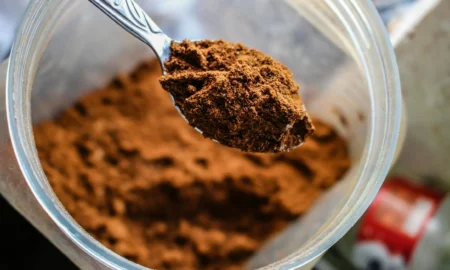

Did you know 80% of your immune system is in your gut? Or that many health issues can be traced back to your digestive system? This is true!
Your gut, or “second brain,” is home to trillions of microorganisms – bacteria, fungi, viruses, and even a few parasites – known collectively as your gut microbiome. These little guys are busy behind the scenes, aiding digestion, regulating immunity, producing vitamins, and even keeping your mood in check.
The thing is, this delicate balance of good and bad bacteria can be easily thrown off by everyday factors like stress, antibiotics, and diet. When that happens, the “bad” bacteria can overpower the good, potentially leading to leaky gut syndrome, inflammation, or other digestive issues. Thankfully, there are simple, effective ways to restore gut health and keep your system balanced.
Here are 10 ways to improve your gut health and feel the short–and long–term difference.
1. Eat Probiotic Foods or Take a Probiotic Supplement
Probiotics are live microorganisms that boost gut health by replenishing beneficial bacteria. Foods rich in probiotics, like yogurt, kefir, sauerkraut, and kombucha, help enhance digestion, improve immunity, and even support muscle gain.
- Short-term benefits: Improved digestion and reduced bloating within days.
- Long-term benefits: A stronger immune system and balanced gut microbiome, lowering risks of infections and supporting mental clarity over time.
If you’re not getting enough probiotics from food, a daily probiotic supplement can help. But check with a healthcare provider if you’re on medications or have health conditions before adding supplements.
2. Enjoy More Fermented Foods
Fermented foods like kimchi, tempeh, and miso undergo a natural process that makes them rich in beneficial bacteria. They work to populate your gut with “good” bacteria, helping with immunity, reducing inflammation, and improving recovery.
- Short-term benefits: Reduced fatigue, improved digestion, and energy boosts.
- Long-term benefits: A well-balanced microbiome, stronger immune response, and decreased inflammation, beneficial for active individuals and athletes.
Incorporating fermented foods into your diet is one of the easiest ways to support gut health naturally.

3. Cut Down on Sugar and Refined Foods
Sugars and highly processed foods can lead to an overgrowth of harmful bacteria, causing an imbalance in the gut. They can also spike and crash your blood sugar, leaving you fatigued and craving even more sugar.
- Short-term benefits: Better energy levels and fewer sugar crashes.
- Long-term benefits: Reduced risk of chronic diseases, like diabetes and obesity, along with a more stable, healthy gut environment.
Instead, opt for whole foods, vegetables, and fiber-rich options. You’ll feel more sustained energy, and your gut will thank you!
4. Eat More Fiber-rich Foods
Fiber is like a natural scrub for your digestive system. It keeps things moving along and helps prevent issues like constipation. Fiber is also food for your gut bacteria, helping maintain a balanced microbiome.
- Short-term benefits: Reduced bloating, regular bowel movements, and a lighter feeling.
- Long-term benefits: Improved heart health, lower cholesterol, and a reduced risk of conditions like IBS (Irritable Bowel Syndrome).
Good sources of fiber include fruits (like berries and apples), vegetables (such as broccoli and carrots), and whole grains. Fiber-rich foods give your gut bacteria something to thrive on, so include them in your diet as much as possible.

5. Exercise Regularly
Getting your body moving is great for gut health. Physical activity increases blood flow, which helps food pass through your digestive system more efficiently. Regular exercise has also been shown to support a healthy gut microbiome, making it easier to maintain a balanced weight and keep bloating at bay.
- Short-term benefits: Improved digestion and less bloating.
- Long-term benefits: A healthy weight, stronger gut function, and better overall immune health.
Aim for at least 150 minutes of moderate exercise each week – a good mix of cardio and strength training works wonders for your gut and overall health.
6. Stay Hydrated
Drinking enough water is crucial for overall health, including your digestive system. Water helps food move through your gut and flushes out toxins, making it easier to maintain a balanced gut environment.
- Short-term benefits: Better hydration and improved digestion.
- Long-term benefits: Consistent energy, faster recovery, and more efficient toxin elimination.
Aim to drink around 3.7 liters for men and 2.7 liters for women each day. If you’re physically active or live in a hot climate, consider adding an extra glass or two to stay hydrated.
7. Eat a Variety of Fresh Fruits and Vegetables
Fresh produce is rich in fiber, vitamins, and minerals that support gut health. Fruits and veggies also promote the growth of healthy gut bacteria and provide essential nutrients that help maintain a healthy microbiome.
- Short-term benefits: Increased energy and a lighter, more comfortable feeling.
- Long-term benefits: A balanced gut microbiome, better immunity, and reduced risk of chronic disease.
Fruits like apples, bananas, and berries are great, and so are veggies like broccoli, carrots, and leafy greens. A diverse diet is key to a diverse microbiome, so try to eat the rainbow!

8. Manage Stress
Stress can do a number on your gut health. It can slow down digestion, cause bloating, and alter the gut microbiome by increasing the levels of harmful bacteria. Managing stress with regular exercise, sleep, and relaxation techniques is essential for a healthy gut.
- Short-term benefits: Reduced digestive discomfort and improved mood.
- Long-term benefits: Lower risk of gut disorders, a stronger immune system, and improved mental health.
Practice relaxation techniques like deep breathing, meditation, or yoga to support both gut health and overall well-being.
9. Include Prebiotic Foods in Your Diet
Prebiotics are like food for probiotics – they’re non-digestible fibers that help beneficial bacteria grow and thrive. Foods like garlic, onions, bananas, and asparagus are rich in prebiotics, providing essential nutrients that keep your gut balanced and healthy.
- Short-term benefits: Improved digestion and better nutrient absorption.
- Long-term benefits: A thriving gut microbiome and reduced risk of inflammation.
Adding these prebiotic foods helps create an environment where probiotics can thrive, supporting gut health for the long haul.
10. Get Enough Sleep
Getting a solid 7–9 hours of sleep each night is crucial for gut health. During sleep, your body produces white blood cells and repairs tissues, which plays a huge role in balancing the gut microbiome. Poor sleep has been linked to gut issues and inflammation, so sleep well to feel well.
- Short-term benefits: Improved digestion and energy levels.
- Long-term benefits: Reduced inflammation, stronger immune function, and better overall health.
If you struggle with sleep, try practicing good sleep habits, like keeping a regular sleep schedule and reducing screen time before bed.

BONUS TIP: Avoid Alcohol and Smoking
Alcohol and smoking can be especially damaging to the gut microbiome, as both promote harmful bacteria and reduce beneficial ones. Alcohol can disrupt the balance of bacteria in your digestive system while smoking increases your risk of gut-related diseases and conditions.
- Short-term benefits: Improved digestion and reduced inflammation.
- Long-term benefits: Lower risk of chronic digestive disorders, better immune function, and overall improved gut health.
Opting to limit alcohol and avoid smoking can drastically improve your gut health and help you avoid gut issues down the road.
Conclusion
Your gut is central to your overall health. By incorporating these simple, healthy lifestyle changes, you can positively impact your gut and, in turn, improve immunity, energy, mood, and so much more. While some of these benefits can be felt in the short term, the long-term gains are even more rewarding – from reducing the risk of chronic disease to keeping your body functioning at its best.
Before making major changes to your diet or adding new supplements, check with your healthcare provider, especially if you have a medical condition. Small, consistent changes add up over time, so take it one step at a time and prioritize what feels best for you.






















You must be logged in to post a comment Login